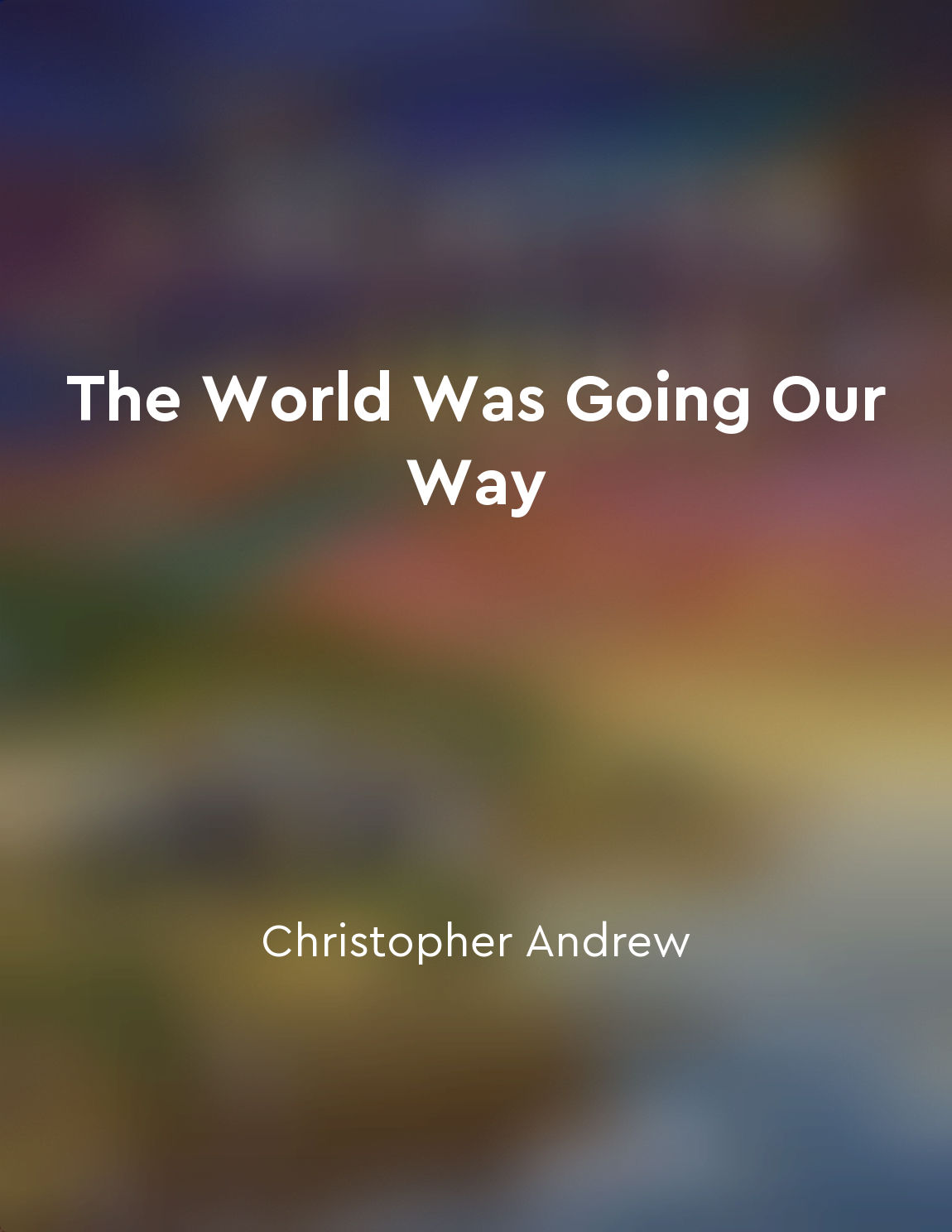Prague Spring, Hungarian Revolution, Solidarity Movement from "summary" of The World Was Going Our Way by Christopher Andrew
The events of 1968 - the Prague Spring in Czechoslovakia, the Hungarian Revolution in 1956, and the Solidarity Movement in Poland - were pivotal moments in the history of the Cold War. Each of these movements represented a challenge to Soviet domination in Eastern Europe, and each was met with a violent response from the Soviet Union. The Prague Spring, led by Czechoslovakia's reformist leader Alexander Dubček, sought to create "socialism with a human face." The movement called for political liberalization, freedom of speech, and an end to censorship. The Soviet Union, fearing the spread of dissent to other Eastern Bloc countries, responded by invading Czechoslovakia with Warsaw Pact troops in August 1968. The Prague Spring was crushed, and Dubček was replaced by a more hardline leadership. The Hungarian Revolution of 1956 was another significant challenge to Soviet control in Eastern Europe. The uprising, sparked by protests against the oppressive policies of the Hungarian government and Soviet influence, quickly turned into a full-scale revolt. The Soviet Union...Similar Posts
The Red Army defeated the White Army
The civil war between the Reds and Whites was a brutal struggle for power in Russia. The Bolsheviks, led by Lenin, represented ...
World War II brought devastation to the Soviet Union
The Second World War wreaked havoc on the Soviet Union, leaving behind a trail of destruction and suffering that would scar the...
Economic hardship
Economic hardship in postwar Eastern Europe was not just about poverty or the lack of luxury goods; it was about the absence of...
Economic competition drove Cold War policies
During the Cold War, the United States and the Soviet Union engaged in a fierce competition that extended beyond military capab...
The atrocities committed by the Nazis underscore the depths of human depravity
The sheer magnitude of the horrors perpetrated by the Nazis during their reign of terror is almost incomprehensible. From the s...
DeStalinization
DeStalinization was a process of political and cultural change that began in the Soviet Union after the death of Joseph Stalin ...
Terrorism challenged international security
Terrorism, that is the use of violence to achieve political ends, became a significant challenge to international security. Thi...

